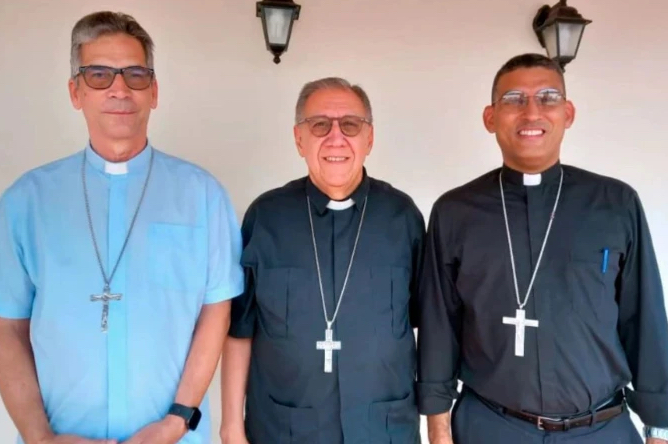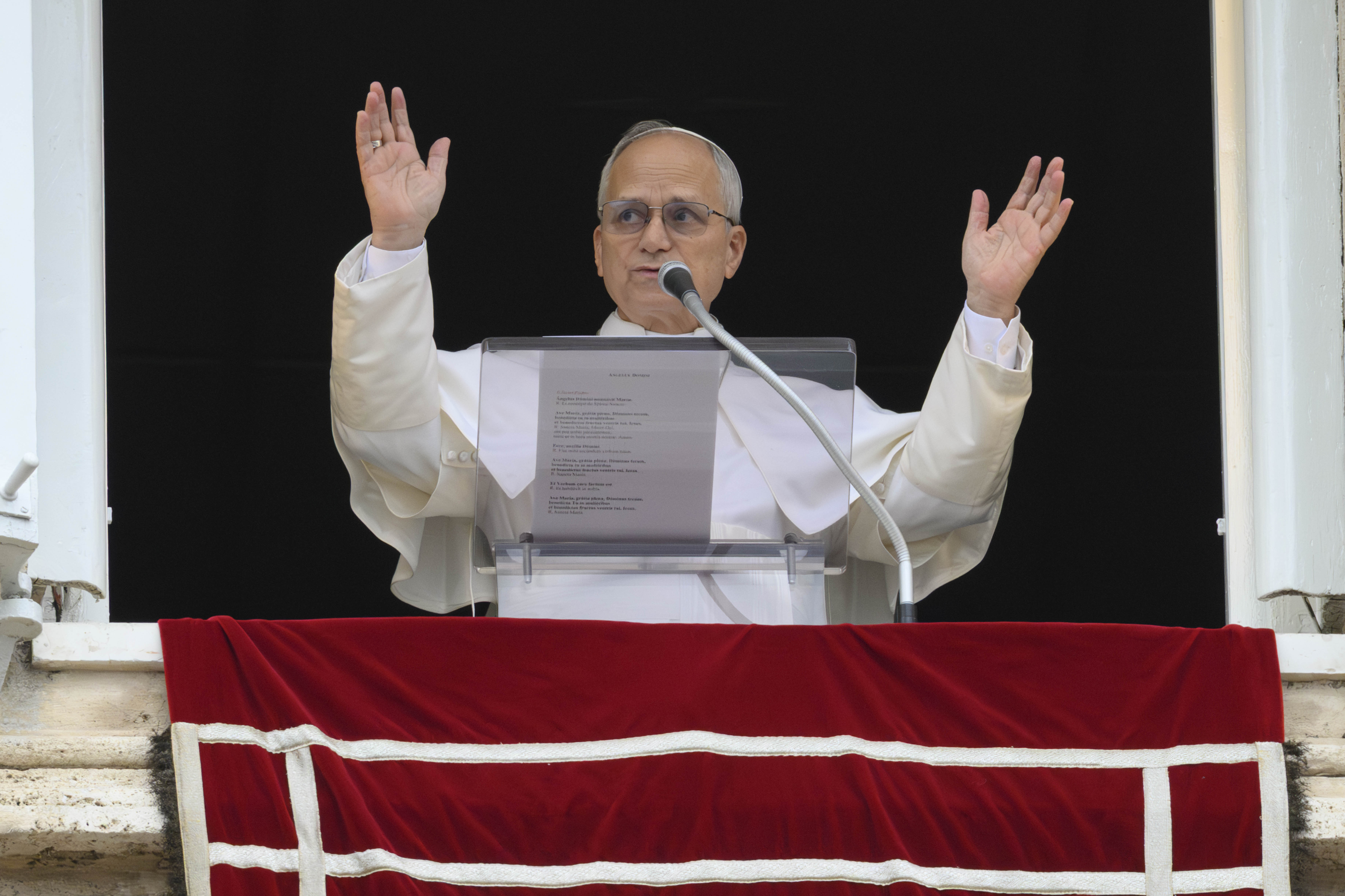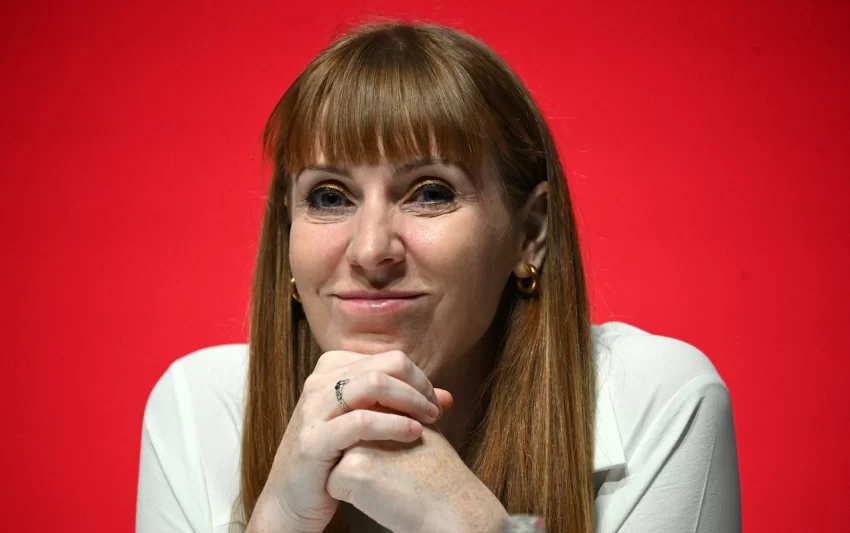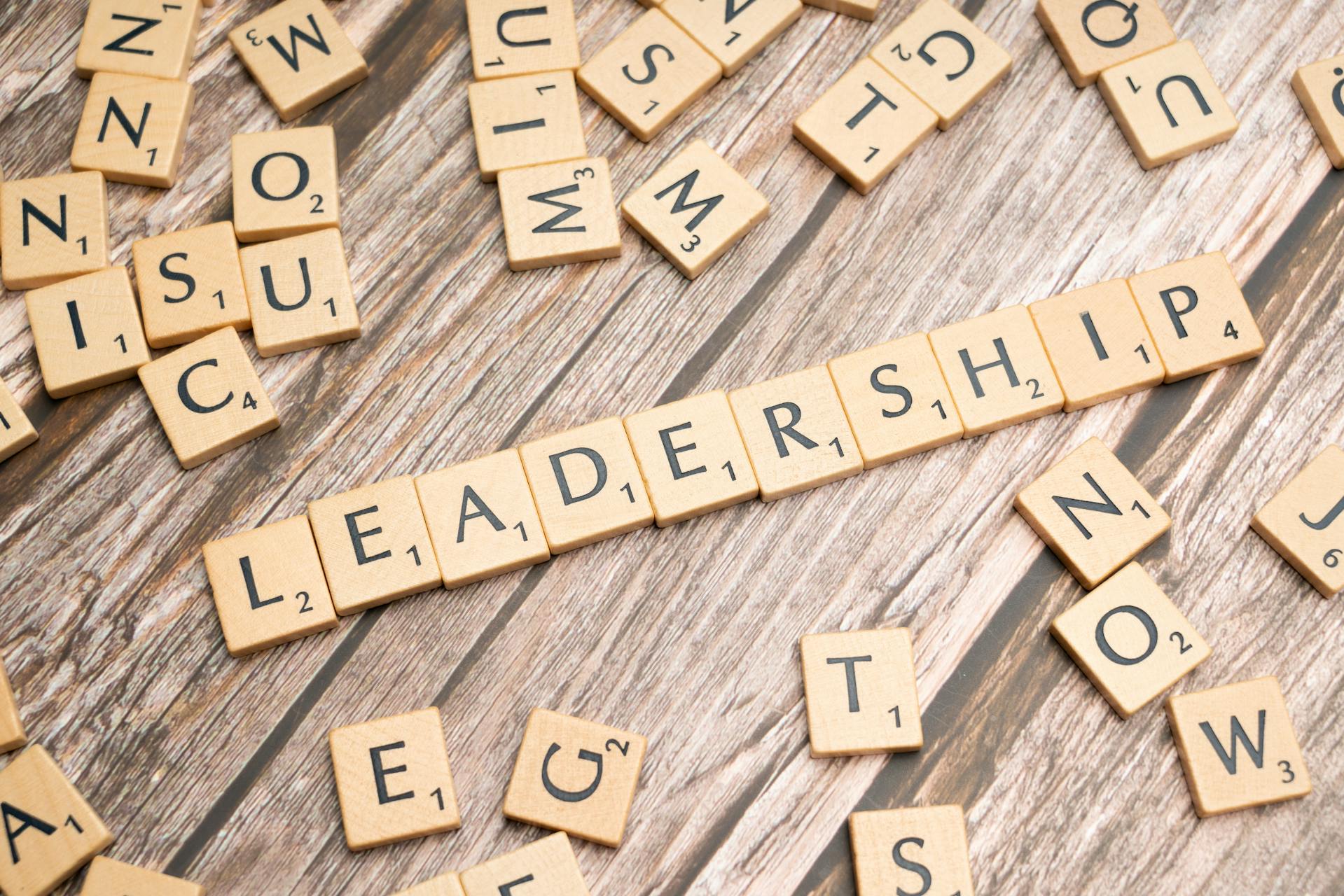Why the case against James Comey may end in humiliation for Trump’s DOJ
The indictment of James Comey, ordered up by President Donald Trump in a breathtaking breach of Justice Department independence, is being welcomed with glee in MAGA circles.
But the case against the former FBI director and longtime Trump nemesis may quickly end in disappointment — and even humiliation — for the prosecutor who was conscripted by the president to bring the charges.
The bare-bones indictment secured by that prosecutor, Trump loyalist Lindsey Halligan, is exceptionally weak, former prosecutors and legal experts say. Fundamental problems with the case itself — as well as the unusual events that preceded the indictment — will make it difficult to bring Comey to trial, let alone secure a conviction.
Former federal terrorism prosecutor Andy McCarthy called the charges “poorly done” and predicted they will be thrown out by a judge well before any trial.
“The whole thing is just bizarro,” McCarthy said. “This is the kind of thing that should never ever happen. … This case should never go to trial because it’s obvious from the four corners of the indictment that there’s no case.”
The issues that could doom the case include the overt political pressure by Trump to bring the indictment, Halligan’s own inexperience, peculiarities in the indictment itself and even a five-year-old technology issue.
Here’s a look at some of these challenges.
The president’s public pressure
Shortly after the charges were unveiled Thursday evening, Comey all but dared the Trump administration: “Let’s have a trial,” he said in a video posted on Instagram. But in all likelihood, he and his attorneys will spend the next few months seeking to crush the case against him before it ever reaches a jury.
Judges have the authority to throw out a criminal case at an early stage of the proceedings if they find that the charges are not supported by sufficient evidence or that prosecutors violated the constitutional rights of the defendant.
One way to get a case dismissed is to argue that it’s the product of a “selective or vindictive” prosecution. It’s notoriously difficult to have a case tossed on that basis, because defendants must show that prosecutors acted on improper motives and influences. Trump tried, unsuccessfully, to get his own criminal charges dismissed on these grounds before he returned to the White House.
But in Comey’s case, there is ample public evidence that the charges were not the result of prosecutors’ neutral assessment of the facts. Rather, they appear to have been brought at the behest of a president seeking to use prosecutorial muscle to settle an old score.
In the days leading up to the indictment — with the statute of limitations looming — Trump engineered the ouster of the U.S. attorney in the Eastern District of Virginia, Erik Siebert, who is believed to have recommended against charging Comey. Trump then pressured Attorney General Pam Bondi to install Halligan — Trump’s own former personal lawyer — in the job. And crucially, the president explicitly linked the moves to his desire to see Comey, and other adversaries, face criminal charges.
Comey’s lawyers are virtually certain to highlight the public pressure campaign in a motion asking U.S. District Judge Michael Nachmanoff — the Biden appointee who was randomly assigned to handle the case — to dismiss the charges as selective and vindictive.
“If I’m defending Comey, that Trump order to Pam Bondi to prosecute him, that’s a big problem,” said one former Eastern District of Virginia prosecutor, who was granted anonymity because he fears retaliation for speaking about the case. “That’s going to bite them in a big way. … Comey could become the poster child for selective prosecution.”
Scant evidence of Comey’s alleged lie
Comey is charged with two felonies: making a false statement and obstructing a congressional proceeding. Both charges stem from testimony that Comey gave to the Senate Judiciary Committee in September 2020 about the FBI’s probe of Russian links to Trump’s 2016 campaign.
But the indictment is devoid of any details about how Comey’s testimony can be proven to be a criminal lie. It doesn’t contain a single quote that Comey allegedly uttered.
During the hearing in question, in a response to Sen. Ted Cruz (R-Texas), Comey stated: “I stand by the testimony you summarized that I gave in May of 2017.” That was a reference to an earlier hearing, in which Comey told Sen. Chuck Grassley (R-Iowa) that he had not authorized anyone at the FBI to speak anonymously to the press about the Trump-Russia investigation or about a separate investigation into Hillary Clinton’s use of private email for State Department business.
Some Trump supporters have argued that Comey lied when he said he stood by the earlier testimony, because they believe Comey did authorize his deputy FBI director, Andrew McCabe, to leak information about the Clinton probe to the Wall Street Journal. Comey and McCabe have provided differing accounts of a conversation the two men had on the day after the Journal published a story on the probe, although there’s no indication McCabe has ever claimed he got advance permission from Comey for any leak.
Complicating the matter, Cruz’s question to Comey during the 2020 hearing was ambiguous: Cruz apparently misquoted Grassley and asked Comey about “the Clinton administration.” Cruz seems to have meant to refer to an FBI probe into the Clinton Foundation. And at the 2017 hearing, Grassley was focused on the higher-profile investigation into Hillary Clinton’s private email server.
There were also reports Friday that the disclosure prosecutors contend Comey falsely denied didn’t come from McCabe at all, but from a longtime friend of Comey, Columbia Law Professor Daniel Richman. However, Cruz’s question to Comey was about an authorization to “someone else at the FBI.” Richman was an official adviser to Comey for the FBI, but whether a full-time law professor could be considered to be “at the FBI” is open to debate.
Years before the Cruz questioning, Comey acknowledged that after he was fired by Trump he released some memos about his dealings with Trump to the press through Richman. But it seems implausible that leak is what the false-statement charge is about because Comey made that acknowledgment at a nationally televised Senate hearing in 2017.
Confused? A jury could be, too. But this is the upshot: Even if prosecutors can prove that Comey did once authorize some leak, they may still struggle to prove what precisely Comey was being asked about, and what precisely he was saying, when he asserted that he stood by his 2017 testimony.
Federal courts tend to be highly exacting about criminal charges based on false statements. To meet that standard, prosecutors will need to come up with extensive evidence — including about Comey’s subjective intent during the 2020 hearing — that does not currently exist in the public record.
An inexperienced prosecutor whose signature stands alone
A telling sign of the unusual nature of the Comey case — and, potentially, its weaknesses — is that no career prosecutors put their names on it.
Typically, federal indictments are signed by assistant U.S. attorneys, the rank-and-file prosecutors who specialize in specific areas of criminal law and who may have spent months or years building the case. But the Comey indictment was signed only by Halligan, a longtime insurance lawyer who had no prosecutorial experience when she was sworn in as interim U.S. attorney on Monday.
Halligan is best known in Trump world for being the first attorney present when the FBI searched Mar-a-Lago ahead of criminal charges Trump faced for hoarding classified documents there after his first term ended. More recently, she had been combing through Smithsonian offerings to ensure they align with Trump’s agenda.
It is unclear whether any career lawyers in the U.S. attorney’s office for the Eastern District of Virginia agreed with the decision to seek charges against Comey or will be willing to help conduct the day-to-day work of the prosecution.
Prosecutors can face professional sanctions — including disbarment — for bringing a case without a valid basis. A trio of former White House ethics lawyers who have been persistent Trump critics pressed the House and Senate Judiciary Committees on Friday to investigate Halligan’s unexpected appointment on the eve of the Comey indictment.
Insults from the White House
Just as Trump’s pre-indictment comments may have tainted the Comey case, his post-indictment gloating may further derail it.
When criminal cases are underway, federal prosecutors and their bosses usually clam up. They don’t want to corrupt the jury pool or misstate the facts of the case.
In the Trump era, that cautionary norm has disappeared. And Trump, who has long castigated Comey, has piled on in the hours after the indictment.
On Thursday night, the president called Comey “one of the worst human beings.” By Friday morning, he was doing legal analysis of the case, calling the alleged false statement “not a complex lie, it’s a very simple, but IMPORTANT one.” Then, speaking to reporters at the White House, Trump branded Comey “a dirty cop.”
In ordinary cases, such comments from the president would be considered highly prejudicial and would potentially violate the defendant’s right to a fair trial. Comey’s lawyers are likely to Ctrl+C Trump’s remarks right into a motion to dismiss.
‘We don’t know what the witness said’
There may be a more mundane reason prosecutors struggle to convict Comey, even if the case reaches trial: technology glitches in the Covid era. During the September 2020 Senate hearing, Comey testified remotely from his home in McLean, Virginia, and right from the start there were signs of a poor internet connection.
Sen. Lindsey Graham (R-S.C.), who presided over the hearing, joked about the audio feed as staff labored to set it up. And during the testimony, Sen. Sheldon Whitehouse (D-R.I.) warned that anytime there was crosstalk, it cut off Comey’s audio, making it challenging to chronicle the full exchanges.
“Mr. Chairman, it’s a technical thing, but when you speak over the witness, your voice blocks out what the witness said, so we don’t know what the witness said,” Whitehouse lamented. “In a regular hearing with the witness here, we can hear what the witness is saying.”
In a case that may turn on the precision of Comey’s words and his understanding of what he was being asked, any doubt about whether the witness and his questioners could hear each other could become problematic for prosecutors.
Jury skepticism
The Justice Department already appears to have encountered some pushback against its case from the grand jurors who approved the two-count indictment. Those jurors rejected a third charge that Halligan asked for: an allegation that Comey lied during the same hearing when he appeared to deny having read a report sent to top FBI officials in September 2016 about the Clinton campaign’s interest in using Trump’s alleged Russia ties to distract from her own legal woes.
Federal grand juries rarely reject any charge prosecutors recommend. That’s because the legal standard for approving criminal charges, known as probable cause, is fairly low, and grand jury proceedings are one-sided: Prosecutors present only the evidence that supports the charges, and grand juries might not hear any arguments or evidence in favor of the defendant. Grand juries also don’t have to be unanimous.
So it’s significant that, at this early stage, the grand jury was unwilling to rubber-stamp the full case Halligan wanted to bring.
At a hypothetical trial, there would be a new jury, and prosecutors would have to clear a much higher bar. They would have to convince the jurors to find Comey guilty beyond a reasonable doubt, a far tougher standard than probable cause. Comey would get to cross-examine prosecution witnesses, call witnesses of his own and present a long list of defenses — if he chooses to put on a defense at all.




















:quality(85):upscale()/2023/09/18/918/n/1922398/a1136b676508baddc752f5.20098216_.jpg)
:quality(85):upscale()/2025/10/09/670/n/1922283/00b944c868e7cf4f7b79b3.95741067_.jpg)
:quality(85):upscale()/2025/10/15/765/n/1922398/29c37a6e68efd84bb02f35.49541188_.jpg)
:quality(85):upscale()/2025/09/09/891/n/1922283/7222624268c08ccba1c9a3.01436482_.png)
















